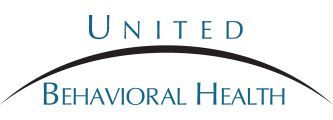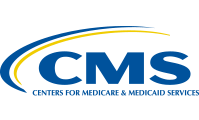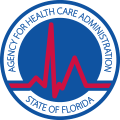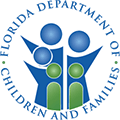North Tampa Behavioral Health provides comprehensive care in a positive setting. Start your recovery journey today.
Treatment for Heroin Abuse
Learn more about Heroin Abuse Treatment
Heroin is an exceptionally powerful and highly addictive opiate that is a derivative of morphine. Given that it is frequently cut with either inert substances, such as baby powder, or other toxic substances such as quinine, people cannot know the exact potency of the drug they are buying, which can lead to an increased risk of an overdose.
People who become addicted to heroin often began first using the substance after being prescribed legal opiates for post-surgical pain or other legitimate purposes. Due to the pleasurable effects of the opiate they may have continued using it after there was no longer a medical reason to do so. Once someone begins using an opiate for non-medical purposes often an addiction develops which includes the symptom of dependence or the need to increase the amount of the drug taken to obtain the desired effects and cravings for the drug when there is no immediate access to it.
Heroin is readily available, cheap and produces a more potent high than the legal opiates. Although perhaps the intention was to only use heroin to fill the gaps between times when other opiate prescriptions could be obtained, the increased potency leads to the individual substituting heroin for other opiates on a full time basis.
Helping a Loved One
How To Help A Loved One Enter Inpatient Rehab for Heroin Abuse
Watching someone you love struggle with an addiction to heroin can be devastating. Those who are close to a heroin addict often feel a jumble of emotions including anger, fear, shame, frustration, guilt and confusion. Often these symptoms in the family members are worsened due to the belief they somehow caused the problem or should have at least been able to prevent it.
In other cases, while friends or family members may suspect a loved one has an addiction they aren’t certain. If you think someone you care about has a problem with heroin there are certain things to look for indicating a need for treatment. These include:
- Needles or syringes not used for other medical purposes
- Burned silver spoons
- Aluminum foil or inner gum wrappers marked with burns
- Extra shoelaces lying around or missing laces shoes (used to tie off injection sites)
- Straws marked with burns
- Plastic bags with a white powdery residue
- Water pipes or other types of pipes
- The person wears long pants or long sleeves to hide needle marks, even in warm weather
- Needle track marks are visible on the individual’s arms
- The person has bloodshot eyes, or their pupils are larger or smaller than usual
- Unusual smells on the individual’s breath, body, or clothing
- Sudden unexplained need for money
- Sudden change in friends, favorite hangouts, and hobbies
- Sudden changes in personality, opinions or attitudes without recognizable cause
- Sudden mood swings, irritability, or anger outbursts that differ from the individual’s normal behavior
- The person goes from calm to hyperactive or agitated quickly
- The person seems paranoid without apparent cause
If you believe someone you love has a heroin problem, here are a few suggestions:
- Speak with the individual about your worries, offer support and help without judging their actions. This is important since the earlier an addiction is treated the better the outcomes. Be ready to handle excuses and denial with specific examples of behaviors that concern you.
- Be sure to care for yourself and make sure not to neglect your needs. It can be easy to become overwhelmed by a loved one’s heroin problem. Make sure to use your social network to obtain support and share problems.
- Don’t blame yourself. While you can support the person and encourage them to seek treatment they may not listen to your suggestions. You can’t control someone else’s decisions. The person has to take responsibility for their own actions.
Why Choose Us
Why Should You Consider Inpatient Treatment at North Tampa?
Due to the complexities, physical and psychological effects of the drug, an inpatient treatment center may fit your needs better especially when the drug you are battling is heroin.
An inpatient unit that treats heroin addiction usually includes a detoxification unit. When detoxing in an inpatient unit you have medical care available to help make the process as comfortable as possible. This may be achieved through the use of medication to help ease any negative withdrawal symptoms you may experience.
Another advantage of an inpatient treatment center for rehab is that you will have around the clock care and support available. When you recover from heroin, there are often a number of physical and psychological components that can continue to be distressing. An inpatient rehabilitation unit can help you through the most difficult times while aiding you in relapse prevention. You will also have the support of peers who are experiencing the same types of difficulties you are and can provide support and understanding from a firsthand basis.
An inpatient treatment center also lets you remove yourself from your daily responsibilities, expectations, and other stressors that can get in the way of your recovery. Beginning your rehab through participation in an inpatient program prevents you from becoming distracted and allows you to focus entirely on the beginning of the healing process, placing you firmly on the path to recovery.
Rehab Philosophy
Rehab Philosophy and Benefits
As the leading heroin addiction treatment center in Tampa, we believe in an eclectic approach to treatment for treating heroin abuse. This means we draw from a variety of treatment modalities in order to provide you with the individualized care you deserve. We focus on who you are as an individual as well as the complete person not just the symptoms. At the same time while working to learn about you and help determine the best approach to address your symptoms, general body health and well being will be incorporated into your routine to help strengthen you physically and also provide you with a clearer mind, better sleep and improved nutritional intake. These factors go a long way to providing extra resiliency against relapse and a greater ability to fight off your addiction. We will do everything possible to help you see a future filled with hope and potential.
Types of Therapy for Heroin Abuse
Types of Therapy We Use to Treat Heroin Abuse
At our treatment center we use a variety of treatment modalities to help you begin your recovery. From the moment you enter our center, we will dedicate ourselves to helping you obtain new coping skills, resources, and techniques so you are able to continue to move forward in your rehab efforts and avoid the pitfalls leading to relapse.
After a complete evaluation, your treatment team will work with you to determine the most effective treatment plan for your individual needs. This may include the use of medications to help you through detox or to aid in controlling anxiety or other symptoms inhibiting your ability to engage in the therapeutic process.
We are one of the leading providers in Tampa for detox services. Since many individuals who come to us are still addicted to heroin, we administer these services as necessary. Medication management and monitoring are available 24 hours a day so if you are experiencing difficulties, time doesn’t matter to us when it comes to easing your discomfort.
We also utilize group therapy as a method to increase understanding and provide a group forum in which to process issues with others who share your difficulties. Our psycho-educational groups provide information about your disorder and instruction on ways to develop new skills, while our process groups allow you to discuss issues with others who have gone through similar experiences. Your treatment team will help you decide which groups will be most beneficial for your individual circumstances.
Family involvement is an important component of treatment as their support is critical for your healing. It is likely your treatment plan will include a family consultation which will be used to determine the extent to which family problems exist and to help family members learn about your illness so they can better support you as you recover. We also provide family members with referrals to community based resources so they can continue to work on their own issues, learn more about your condition, and what to expect after you are discharged.
The therapists at North Tampa Behavioral Health Hospital often use techniques from the cognitive behavior therapy (CBT) model which helps you learn to identify negative, irrational, or illogical thought patterns and replace them with more adaptive ways of thinking.
When your treatment team determines you no longer need the intense services provided by an inpatient program they will work collaboratively with you to determine the best next step for you to be able to continue to progress toward the life you want to lead.
Continuing Care
Continuing Care – What Comes Next?
At North Tampa, we are committed to ensuring that when time comes for you to be discharged the next step you take has been well thought out and you have been included in the decision making process. Sometimes at discharge, people aren’t yet ready to leave the safe environment provided at the inpatient treatment center. Residential centers are less restrictive yet offer a similarly high level of services as inpatient units. For other individuals who still feel the need for a high level of services while sleeping at home, our Partial Hospitalization Program (PHP) or Intensive Outpatient Program (IOP) may be the best choice. If your hospital stay was a continuation of previous work and not a first step, you may feel ready to resume your life and continue your recovery through traditional outpatient therapy.











